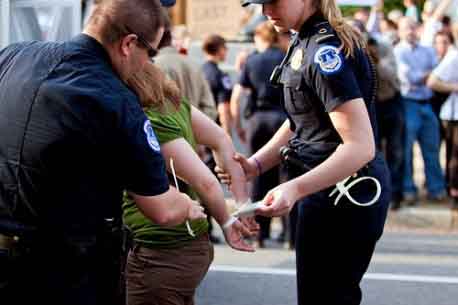Possible Defenses in a Chicago Public Indecency Case
If you’re being charged with public indecency, you may wonder what the big deal is—perhaps you urinated in an alley after a night at the bars or mooned an old college friend as a joke, and you don’t believe that your actions should be considered a criminal offense. Unfortunately, the arresting officer probably didn’t see things this way, and you need to take any charge leveled against you very seriously.
Under Illinois state law 720 ILCS 5/11-30, public indecency is typically considered a misdemeanor. Most people convicted of this misdemeanor are not given a prison sentence, but they may have to register as a sex offender. Registering as a sex offender can have far-reaching, long-term effects, such as limiting housing options, making it difficult to find a job, and making it difficult to pursue a higher education degree. There is also the stigma associated with being a registered sex offender, which can weigh down on a person and damage their relationships with friends, neighbors, and families.
Fortunately, a public indecency charge does not automatically equal a public indecency conviction, and you may be able to get any charges against you dropped with a strong defense. Let’s take a look at some of the defenses you may be able to use. Remember, the defenses described below should not be misconstrued as legal advice, and you should not attempt to represent yourself in a trial when there’s so much at stake—you should instead work with a well-qualified public indecency lawyer.
Defining Public Indecency
To better understand some of the defenses used in public indecency cases, let’s first look at the definition of public indecency under Illinois state law. In our state, someone over the age of 17 can be charged with public indecency if they either commit an act of sexual conduct or lewdly expose their body with the intent to arouse or satisfy a sexual desire in a public place. For the purposes of the statute, “public place” is defined as “any place where the conduct may reasonably be expected to be viewed by others.”
Possible Defense: Space Should Not Be Considered Public
 In some cases, a defense attorney may use the definition of a public place to argue that their client could not have reasonably expected their actions to be viewed by others. For example, if you were engaged in a lewd act inside your own car in a residential area, or if you ducked into an empty alley to urinate, you could reasonably expect not to be seen. You might be able to make the case that you were taking reasonable caution not to be seen, and the arresting officer was purposefully trying to “catch you in the act.”
In some cases, a defense attorney may use the definition of a public place to argue that their client could not have reasonably expected their actions to be viewed by others. For example, if you were engaged in a lewd act inside your own car in a residential area, or if you ducked into an empty alley to urinate, you could reasonably expect not to be seen. You might be able to make the case that you were taking reasonable caution not to be seen, and the arresting officer was purposefully trying to “catch you in the act.”
Possible Defense: Exposure Was Not Intentional
Because public indecency involves “the intent to arouse or sexually satisfy,” some defendants may be able to argue that they did not intend to expose themselves to another person in a sexual way. For example, a person might forget to zip up their pants after leaving a public restroom, or might urinate on a fence in a park without realizing there were children nearby. In this type of situation, their attorney needs to prove what the defendant could reasonably be expected to know or not know. For example, if the defendant urinated in a park far away from a children’s play area, they might be able to prove they had no reason to believe there were children nearby.
Possible Defense: Police Violated the Defendant’s Rights
 This defense does not relate to the act of public indecency itself, but rather to the conduct of the police. If the arresting officer asked leading questions, such as, “Why did you knowingly expose yourself in public?”, or if they failed to read you your Miranda Rights, a defense attorney could argue that any testimony you gave could not be used as evidence against you. An attorney might also argue that misconduct occurred if the police denied you counsel, meaning that you said you didn’t want to talk until a lawyer was present, but they continued questioning you anyways.
This defense does not relate to the act of public indecency itself, but rather to the conduct of the police. If the arresting officer asked leading questions, such as, “Why did you knowingly expose yourself in public?”, or if they failed to read you your Miranda Rights, a defense attorney could argue that any testimony you gave could not be used as evidence against you. An attorney might also argue that misconduct occurred if the police denied you counsel, meaning that you said you didn’t want to talk until a lawyer was present, but they continued questioning you anyways.
No matter what your specific situation, it’s best to cooperate with the police but politely refuse to answer questions until your lawyer is present. Contact a sex crimes defense attorney as soon as possible so that you can start building a strong defense and, ideally, get the charges dropped. You shouldn’t have to face a lifetime of being stigmatized and having limited opportunities due to a public indecency conviction.
About the Author:
Andrew M. Weisberg is a former felony prosecutor who now serves as a defense attorney in the greater Chicago area. He has extensive experience in handling all types of criminal cases, from sex offenses and violent crimes to theft-related crimes and traffic violations.







 Blog Home
Blog Home 










